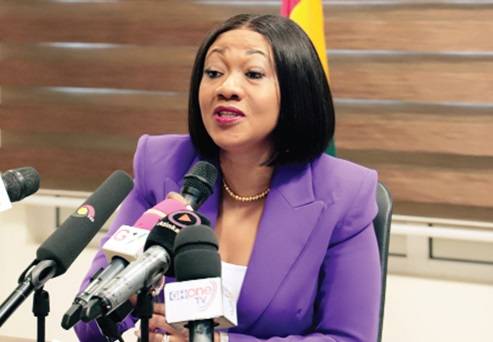The High Court in Accra has issued a decisive directive to the Electoral Commission (EC) to complete the collation of election results in four contentious constituencies: Tema Central, Ablekuma North, Okaikwei Central, and Techiman South. This mandate, which comes with a firm deadline of January 6, 2025, aims to resolve electoral disputes that have lingered since the December 2024 general elections.
In addition, the court has instructed the Inspector General of Police to deploy adequate security personnel, including armed officers, to ensure the collation process proceeds without disruptions. This ruling underscores the court’s commitment to safeguarding the integrity of the electoral process and restoring public confidence in Ghana's democracy.
The directive follows the granting of mandamus applications filed by parliamentary candidates of the New Patriotic Party (NPP) in the affected constituencies. The candidates had petitioned the court to compel the EC to fulfill its constitutional duty of collating and declaring results accurately.
Mandamus Ruling Explained
Justice Forson Agyapong, who presided over the case, provided a detailed explanation of the principles underpinning the court’s decision. He highlighted that for a mandamus application to be granted, the applicant must demonstrate one or more of the following:
- Lack or excess of jurisdiction by the respondent.
- Error of law evident in the proceedings.
- Failure to adhere to the rules of natural justice.
- Breach of the Wednesbury principles of reasonableness.
Additionally, the applicant must prove that a public duty exists, a demand for the performance of this duty has been made, and substantial prejudice has resulted from the failure to carry out this duty.
In each of the four constituencies, Justice Agyapong found that the EC had failed to fully perform its constitutional obligations, thereby justifying the court's intervention.
Constituency-Specific Failures
The court’s ruling addressed specific lapses in each constituency, underscoring the need for immediate corrective action.
Tema Central:
In Tema Central, the EC was found to have failed in collating results from two outstanding polling stations. Justice Agyapong noted that a declaration made by anyone other than the designated returning officer was legally invalid.
Ablekuma North:
The situation in Ablekuma North revealed that results from 62 out of 281 polling stations remained uncollated. The EC’s decision to declare results based on only 219 polling stations was deemed incomplete and inadequate.
Okaikwei Central:
The court found that the EC had declared results for Okaikwei Central based on only 110 of the 141 polling stations in the constituency. This failure to account for 31 polling stations represented a significant breach of duty.
Techiman South:
Techiman South presented the most glaring anomaly, with results declared based on only 135 out of 282 polling stations. This left 147 polling stations unaccounted for, casting serious doubts on the validity of the declaration.
Court Directs Completion of Collation
In his final ruling, Justice Agyapong ordered the EC to immediately collate the outstanding results from all unaccounted-for polling stations in the four constituencies. He emphasized that the collation process must be completed transparently and in accordance with electoral laws. The results must then be integrated into the previously declared figures to provide a complete and accurate account of the votes cast.
The court also underscored the importance of ensuring public trust in the electoral process. The Inspector General of Police was directed to oversee the provision of adequate security during the collation exercises, with a particular focus on maintaining order and preventing any potential acts of violence or intimidation.
Implications for Ghana’s Electoral Integrity
This ruling is widely seen as a pivotal moment in Ghana’s electoral history. By compelling the EC to address these irregularities, the court has reinforced the principle of accountability in public institutions. It also sends a clear message that lapses in the electoral process will not be tolerated.
Observers and stakeholders have praised the court’s decision, describing it as a necessary step to uphold the sanctity of Ghana’s democracy. Political analysts have noted that the ruling could set a precedent for handling similar disputes in the future, ensuring that electoral bodies remain vigilant in executing their duties.
As the January 6 deadline approaches, the eyes of the nation remain fixed on the EC. The successful completion of the collation exercises will not only bring closure to the affected constituencies but also serve as a critical test of Ghana’s commitment to transparent and credible elections.




No comments yet
Be the first to share your thoughts!